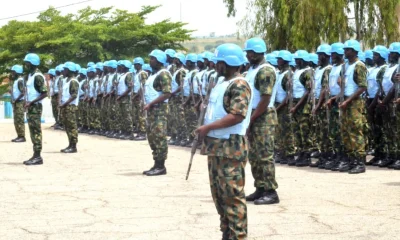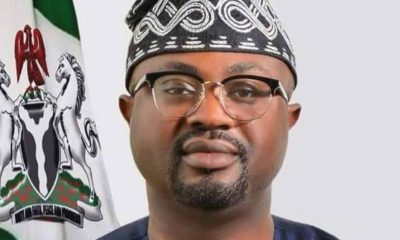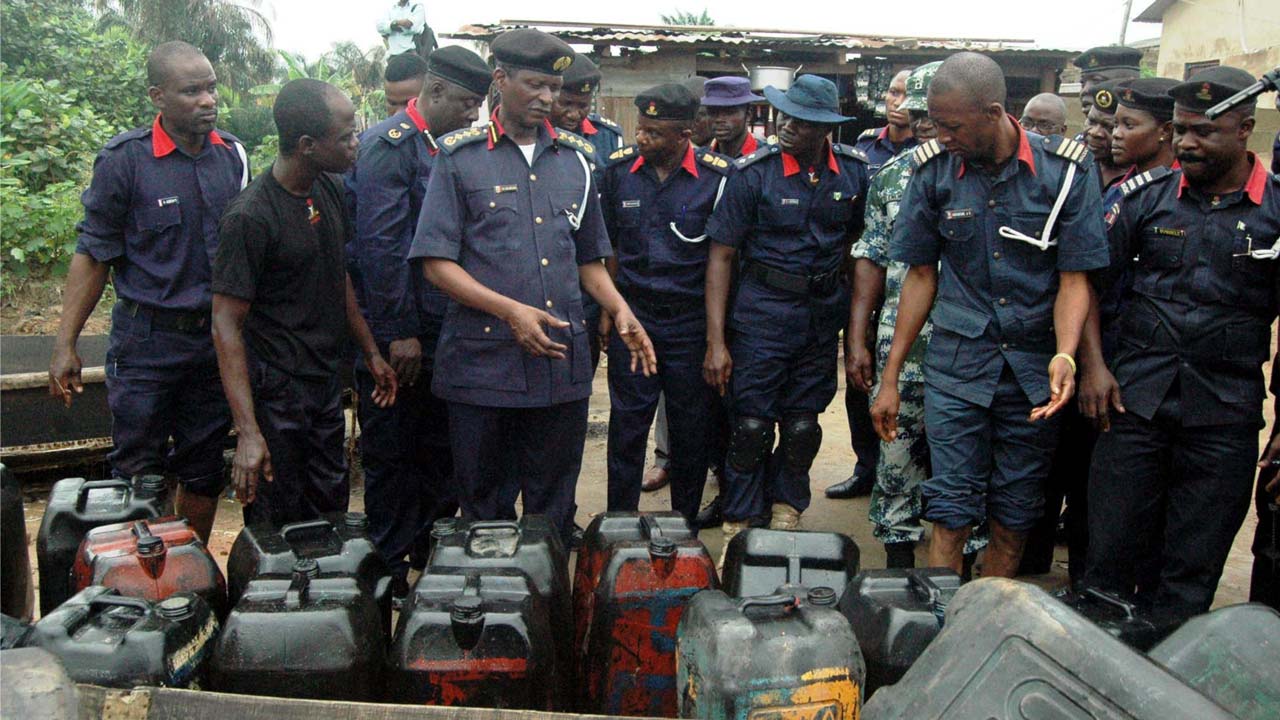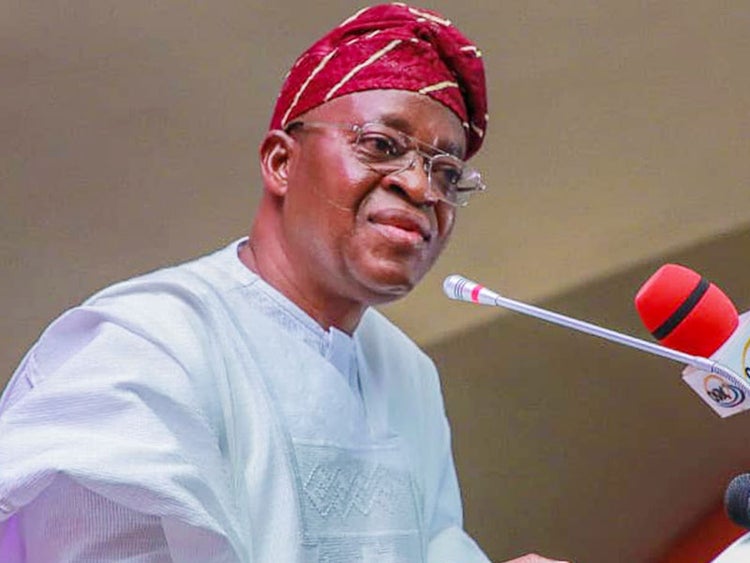FEATURES
When Helicopters Crash: Wigwe, Kobe, Iran…
By Reuben Abati
Media Vita In Morte Sumus (In the midst of life we are in death). This is a Gregorian chant that I often recall whenever there is an accident; a sudden, shocking abbreviation of life in the midst of hope and promise; a most tragic reminder of man’s mortality.
Life as either a chemical or biological process must come to an end when it will, but it is the time and manner it does that leaves the lasting imprint on our memory.
The tragic death of the President of Iran, Ebrahim Raisi (63), his foreign Minister, Hossein Amirabdollahian (60) and seven others in a helicopter crash on Sunday evokes these thoughts afresh, as well as frightening memories.Nigeria was thrown into shock in February this year when the tragic news was reported that Herbert Wigwe, group managing director and CEO of Access Holdings had died in a helicopter crash in the United States, along with his wife, Chizoba; his 29-year-old son, Chizzy; and his lawyer, Abimbola Ogunbanjo, on their way to the Super Bowl in Las Vegas. The quartet had a great future ahead of them.
Wigwe had just completed a university, the Wigwe University, in his home town of Isiokpo, Rivers State, through which he planned to raise educational standards and provide opportunities and quality. He and Ogunbanjo were full of life.
The death of three members of a family in one tragic accident was beyond comprehension. Nigerians and the international community mourned. The week before his death, I had received a phone call from Herbert, sharing his views about a subject we had discussed on “The Morning Show.” He was a kind, affable gentleman, completely without airs. I know many people in high places who are just full of hydrogen, with blown up ego. Not Wigwe.
Herbert Wigwe’s life was short, but his impact was profound. As was the case also with Kobe Bryant, American professional basketball player, five-time NBA champion, two times NBA Finals Most Valuable Player and NBA Most Valuable Player (2008), one of the most outstanding men on America’s basketball court. He died in a helicopter crash on 26 January, 2020, along with nine others, including his 13-year-old daughter, Gianna. They were going for a basketball game in Thousand Oaks, California.
And now again, in the past few days, there has been yet another case of a helicopter crash involving prominent persons in Iran: the President, the Foreign Minister and seven others. They were returning from a diplomatic mission to Azerbaijan, namely, the inauguration of a dam at the Eastern border, which was attended by President Ilham Aliyev of Azerbaijan.
It took a search and rescue party led by the Iranian Red Crescent Society, scouting around for 15 hours, before it was confirmed yesterday morning that the wreckage of the helicopter had been found, and there were no signs of life.
President Ebrahim Raisi was a prominent political and religious figure in Iranian politics. He and the late Foreign Minister were aligned with the conservative and hardline factions in Iranian politics. Raisi had served as a prosecutor in his early years, and as a member of a panel of judges, the so-called Assembly of Experts, which sanctioned the execution of political prisoners.
He later became Attorney General of the Republic. He ran for the Presidency in 2017, but lost to the more moderate Hassan Rouhani. He would be lucky in 2021 when he won, and became President in what was a controversial election with low voter turn-out.
It was believed that his emergence as President was carefully managed by his mentor, the man who has the final say in all matters in Iran, the Supreme Leader, Ayatollah Ali Khameini. He was looking forward to running for a second term in office in 2025. And now he is dead.
It was under his watch in 2022, for example, that a 22-year-old woman, Mahsa Amini, was detained, and allegedly killed in detention for wearing a loose headscarf. In the course of the mass protests that followed, more than 500 people were killed, over 22,000 others were detained. He is praised, however, for the diplomatic truce that was reached with Saudi Arabia last year.
In all the three cases of deaths resulting from helicopter crashes cited above, one common thread is that every accident occurred as a result of the malfunctioning of the helicopter and weather issues as well. In the Wigwe case, the reports cited poor weather, rain and showers in the area of the crash, on the edge of the Mojave Desert Preserve.
When Kobe Bryant died in a helicopter accident at Calabasas, investigators also cited poor visibility and low cloud ceiling, in addition to pilot error. Preliminary investigations into the crash in Iran have indicated challenging weather conditions and technical fault. In a political twist to the Iran incident, former Iranian Foreign Minister Mohammad Javad Zarif blames US sanctions for the crash.
The truth is that Iranian aircraft cannot be serviced with spare parts, due to sanctions, and hence, the fleet belongs to the pre-1979 Revolution era, old and deteriorating. The helicopter that crashed did not even have a functional signal system. Besides, the Bell 212 that crashed is US-made.
In all three, the aircraft crash landed and burst into fire. But the thing about death is that even “in the midst of death, there is life, and that should shock us” – a reversal of the original saying by James Koester.
Herbert Wigwe died on Friday, 9 February. By Monday, 12 February, the Board of Access Holdings Plc had announced Ms Bolaji Agbede as the acting group chief executive officer. By 14 March, the company re-appointed its co-founder, and non-executive chairman, as Chief Executive Officer of Access Holdings in a substantive capacity.
Kobe Bryant’s wife, Vanessa has at every turn memorialised and honoured her husband, Kobe, but she and her three surviving daughters have embraced life with equanimity. The family naturally feels the pain of death most; some people never heal, but still life goes on.
In Iran, the Supreme Leader, Ayatollah Khameini has urged the nation not to worry, and that “there will be no disruption in the country’s work.” Iran has declared five days of mourning, and the first official state funeral will take place today. Meanwhile, the Cabinet of ministers has met, and replacements have been announced.
Article 131 of the Iranian Constitution prescribes that in the event of the death of the President, the first Vice President assumes office, hence Mohammed Mokhber is now the Acting President of Iran. Ali Bagheri Kani, former Deputy Foreign Minister is also now the Acting Foreign Minister.
Within 50 days, the Constitution prescribes that a new election must be held to elect another President. So, even in Iran life goes on. What remains is the country’s next election in early July. Who will be Iran’s next President? A hardliner or a moderate and what would be the implications of the choice among likely candidates at a time Iran faces serious economic, regional and global challenges?
Helicopters are scary things, from the swirling blades that you have to be mindful of as you board or disembark, to the fact that they are very shaky most of the time when they are air-borne, especially when there is a little shift in the weather condition.
Helicopters are not as stable as regular planes. One of the reasons I felt all hope was not lost when the Jonathan administration left office in 2015 was that I would not have to travel in those machines again, at least not as part of my regular duty routine.
In 2012, it was a really sad moment for the Nigerian government when the National Security Adviser, General Andrew Owoye Azazi; Governor of Kaduna State, Patrick Yakowa, and four others died in a Navy helicopter crash in the forest of Okoroba in Nembe Local Government Area of Bayelsa State on their way to the Port Harcourt International Airport.
The helicopter burst into flames; its occupants were burnt beyond recognition. Every Nigerian President and senior government officials use the helicopter a lot, to cover distances, and in our time, the helicopter was the regular shuttle from the airport to the Villa, or to some nearby locations. On more than one occasion, going to the same Bayelsa state from Port Harcourt, we have had quite some anxiety.
The President directed, there and then, that on our way back from Davos, if the weather was still foggy, we would all return to Geneva by road. No helicopters ride in that kind of foggy weather.
Later that year, July 2013, President Goodluck Jonathan was in China on a five-day state visit. It was a significant trip to strengthen bilateral relations between Nigeria and China. We were well received and everything went well. The hospitality was great.
The chemistry was right. But I recall that one of the programmes on our list could not take place. We were to visit a particular province, but the issue came up that we would have to go in a Chinese aircraft, flown by Chinese pilots, because the route to the province is mountainous and even only carefully chosen and trained pilots are allowed to fly on that route.
Helicopter crashes have claimed the lives of many prominent state officials in the line of duty, including President Rene Ortuno of Bolivia (1969), Prime Minister Rashid Karami of Lebanon (1984), Burundi Defence Minister Colonel Firmin Sinzoyiheba (1998), President Ibrahim Nasir of the Maldives (2008), Vice President John Garang of Sudan (2005), and Chief of Kenya’s military, General Francis Omondi Ogolla (2024).
There is also a long list of leaders across the world who died in plane crashes. Between man, technology and nature, there is a lot about man’s inability to master and control the universe. There have been survivors though: In February 2019, Vice President Yemi Osinbajo of Nigeria escaped unhurt from a helicopter crash in Kabba, Kogi State. In Iran, two helicopters travelling with President Ebrahim Raisi made it back to Tehran safely. Life is complex, the mysteries within it are far more so. May the souls of all departed persons find peace eternal.
JUDICIARY
Emirship tussle: Court rule against Kano govt, others challenging jurisdiction
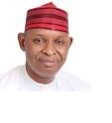
The Federal High Court sitting in Kano has on Thursday, ruled against Kano State government and others challenging the jurisdiction of the court to entertain the issue of fundamental human rights instituted by a Kano traditional holder, Aminu Babba Dan’Agundi in connection with the Emirship tussle.
Recall that the applicant, who is the traditional title holder of Sarkin Dawaki Babba of Kano emirate, Aminu Babba Dan’Agundi had approached the court seeking for enforcement of his fundamental human rights claimed to have been violated by government action in the Emirship tussle.
The respondents in the suit are Kano State Government as 1st respondent, Kano State House of Assembly (2nd), Speaker of Kano State House of Assembly (3rd), Attorney General of Kano State (4th), Kano Commissioner of Police (5th), Inspector General of Police, IGP (6th), NSCDC and DSS as 7th and 8th respondents respectively.
Delivering the ruling on jurisdiction on Thursday, the presiding judge, Justice Abdullahi M. Liman, ruled that the court has jurisdiction to entertain the matter concerning the applicant’s fundamental human rights.
Justice Liman gave the ruling relying on Section 42 sub-section 1 and Section 315 of the 1999 constitution as amended.
However, reacting to the ruling, the Counsel to the 2nd and 3rd respondents, Ibrahim Isah Wangida, said he will meet with his client to decide the next line of action whether or not they will take the option to appeal the ruling in the Court of Appeal.
Meanwhile, the judge, Justice Liman, adjourned the matter till Friday for hearing of all pending applications saying the case is too sensitive for it to be dragged for too long.
FEATURES
Engaging Nollywood to Showcase Nigeria’s Tourism Endowment

By Joshua Olomu
All over the world film is more than an entertainment outlet. It is used as a tool for shaping opinions, driving national narratives to the larger world and projecting a nation’s cultures, economic, technological and other advantages.
Besides its entertainment value, one area where the motion picture is intentionally applied is as a tool for global marketing and advertisement of the tourism sector.
Films are unique platforms for promoting tourism, offering a blend of entertainment and destination marketing that can captivate audiences and inspire travel.
Some of the most admired and visited tourist attractions and destinations, such as the Eiffel Tower in Paris and the Great Wall of China attracted global attention through the power of the visual media.
The wonder of the screen can make tourists travel from around the world to visit the Statue of Liberty in New York and the Pyramids of Giza in Egypt.
Films are powerful tools for promoting tourism by bringing destinations to life, showcasing their unique attributes, and inspiring audiences to visit the real-world locations they have seen on screen.
Nigeria’s film industry, known as Nollywood, is globally recognised as the second largest film producer in the world, turning out over 2,500 movies yearly.
It is only surpassed by Bollywood of India, even though Nollywood does not rake in as much income annually as the others, it is renowned for its rich and unique storytelling attributes.
Before COVID-19 pandemic erupted Hollywood contributed $504 billion to the U.S. GDP. The figure represents at least 3.2 per cent of the goods and services portion of GDP.
Conversely, according to a research firm, PricewaterhouseCoopers, Nigeria’s film industry contributed only $660 million to Nigeria’s GDP in 2021.
One of those who think Nollywood can do better in terms of revenue generation for the country is the Vice-Chancellor, University of Abuja, Prof AbdulRasheed Na’Allah.
“Nollywood can turn around the fortunes of the Nigerian economy. The government must understand that now.
“It is in the interest of the government to know that film industries are multi-million-dollar ventures. They can create wealth.
“From all over the world, people are watching Nollywood. People are beginning to know Nigeria through Nollywood.
“Is it our music, film, cultural dance, or language? We are taking the world by surprise, and because it is going to Japan, China and America, it is creating foreign reserves for Nigeria”, he said.
He spoke at a three-day conference in Abuja, yesterday, in honour of visiting lecturer, Prof Onookome Okome of the Department of English and Film Studies, University of Alberta, Canada, the VC tasked the Federal Government to support Nollywood.
Just like the Nigerian music brand, Afrobeat, Nollywood products have evolved to become global brands that are known and accepted across the world.
In recent times, the industry has produced blockbusters that have been screened in international cinemas, nominated and screened at prestigious festivals such as the Toronto Film Festival, Berlin Film Festival, Cannes Film Festival, among others.
Therefore, it can be argued that Nollywood, as one of Nigeria’s best exports to the world, has not been adequately engaged in showcasing the nation’s rich tourism potential to attract inbound tourists.
Nigeria is known for its rich historical and cultural heritage, breath-taking landscapes and diverse wildlife, which position it as a potential choice destination for tourists seeking unique experiences and adventures.
The country is home to nature tourism, with a lot of natural attractions, including lush rainforest, Savannas, wetlands and unique flora and fauna, spread across its six geopolitical zones.
This diverse ecosystem offers interesting activities to tourists, such as bird-watching,photography,star-gazing,camping,hunting,fishing,hiking and games viewing.
However, with these amazing tourism attractions spread across the country, beside various cultural fiesta and celebrations, Nigeria is yet to be classified as a global tourism destination.
In the 2019 UNTWO World Tourism Ranking, Nigeria was not among the first 10 countries in Africa, with Egypt, Morocco and South Africa standing at first, second and third positions in that order.
Primarily, this ranking is based on the number of visitors and the income generated from the sector within the period.
Perhaps, inadequate packaging, promotion and effective marketing of the nation’s tourism attractions to the global market is the major drawback to the sector, and this is where Nollywood should be engaged by relevant authorities.
There is a need for synergy between industry players, and this is where the Nigerian Film Corporation (NFC) and the Nigerian Tourism Development Authority (NTDA) need to show political will, patriotism and commitment.
NFC has the mandate to establish a robust framework for fostering a thriving and enduring film industry and cinema culture in Nigeria, and thereby actively contributing to the socio-economic advancement of the nation.
One of the NFC’s cardinal functions is to produce films for domestic consumption and export, and this is what puts it in the best position to engage stakeholders in Nollywood.
NTDA is responsible for the planning, supervision, development and marketing of tourism in Nigeria, and it has the duty to encourage people living in Nigeria to take their holidays therein and people from abroad to visit Nigeria.
These agencies need to join hands to initiate a pilot project and engage relevant guilds in Nollywood including the Screen Writers Association of Nigeria, Association of Movie Producers and the Actors Guild of Nigeria.
At the ideation stage of the project, a script should be written with a storyline that set historical and cultural landmarks, parks and wildlife as locations for such a film.
Other tourist locations such as Yankari Game Reserves, Ikogosi warm spring, Erin Ijesha water fall, Ojukwu Bunker, among others should as well be captured.
The various cultural festivals such as Argungu Fishing Festival, Osun Osogbo Festival, the Calabar Carnival and others should be reflected in such projects.
The Federal Government, through its relevant ministries, should as well come up with an incentive mechanism for filmmakers whose projects tend to promote the nation’s tourism landscape.
These collaborations between filmmakers and tourism authorities will consequently lead to joint marketing efforts where film trailers can be paired with tourism advertisements, and locations can offer incentives for film crews to shoot there.
There is no doubt, if well engaged, Nollywood films will introduce audiences to locations they might not have known about, effectively serving as advertisements for these places.
Such films will also highlight the cultural aspects of a location, from food and festivals to traditions and architecture, and this cultural exposure can evoke viewers’ interest in experiencing these elements first hand.
As Nollywood films take a more dominant place on the global stage, using them to highlight the rich tourism attractions that abound in the country will create emotional connections with viewers.
This will attract both domestic and inbound tourists to locations which will ultimately bring sustainable tourism development and make the sector a major source of national revenue.
To be a vehicle for selling Nigeria’s tourism potential to the international community, Nollywood should take the positives from the country.
Then Speaker of House of Representatives, Femi Gbajabiamila, addressed this concern at Leadership Master Training for Nollywood Celebrities and Stakeholders training under the platform of Actors’ Guild of Nigeria (AGN).
“Beyond the questions of economics and profit, there is the issue of the critical role of Nollywood in influencing culture, defining national character, and promoting national identity.
“You also have a responsibility to tell the best stories of our beloved country’’, said Gbajabiamila, now Chief of Staff to President Bola Tinubu.
The Minister of Art, Culture and Creative Economy, Hannatu Musawa, acknowledges the enormity of the task but remains upbeat about what the industry can do.
“We are uniquely positioned in this great nation, endowed with an abundance of human capital and boundless possibilities.
“Our collective aim is singular, and it is bold: to position Nigeria as the world’s culture, creativity and entertainment capital“, she said.
NEWS
Kano Emirship Tussle: Ribadu, Yusuf Meet in Abuja

Kano State Governor Abba Yusuf on Thursday met with National Security Adviser Mallam Nuhu Ribadu in Abuja where they discussed issues concerning the Kano Emirship tussle.
This was contained in a statement issued by Yusuf’s Director-General, Media and Publicity, Malam Sunusi Tofa, in Kano.
Tofa said the meeting was prompted by recent events in Kano following the dissolution of five emirates and the restoration of Emir Muhammad Sanusi II.
Tofa said that the two leaders deliberated on various matters relating to state and national development as well as peaceful coexistence in the state.
Emir Ado Bayero is in court challenging the reinstatement of Emir Muhammad Sanusi II by the Kano State government.
While Sanusi is operating from the Emir’s Palace, Bayero is holding forth at the Emir’s Guest House.
Tofa quoted Yusuf as describing the meeting as fruitful and emphasised the critical role of NSA in ensuring peace in the country.
“I briefed him on the recent developments in Kano, and we discussed ways to promote national security and development,” he Tofa quoted Yusuf as saying.
The meeting comes after the NSA was accused of meddling in the Kano crisis, which he swiftly denied.
The Kano State Deputy Governor, Alhaji Aminu Gwarzo, had apologised to the NSA for the allegation, attributing it to flawed intelligence.
The meeting coincided with Sanusi’s sixth day at the Kano palace, where a significant majority of district heads and kingmakers have pledged their allegiance to him.
The state government has assured that Kano remains peaceful and tranquil, urging residents to continue their regular activities in compliance with the laws of the land.
Sanusi Makes First Appointment amid Emirship Tussle
In as much as the controversy trailing Kano Emirate tussle continues, the 16th Emir of Kano, Muhammadu Sanusi II had on Thursday made his first appointment.
This was coming barely a week after he was reinstalled as the Emir.
Sanusi, the former Governor of Central Bank of Nigeria, CBN, approved the appointment of a new Ward Head of Kofar Mazugal, Hamisu Sani in Dala Local Government area of the state.
The Emir called on the new ward Head to ensure peaceful coexistence among the subjects of the area and contribute his quota towards the development of the state as a whole.Earlier, district heads and personalities such as delegations from religious and market bodies paid homage to Emir Sanusi at the palace.



